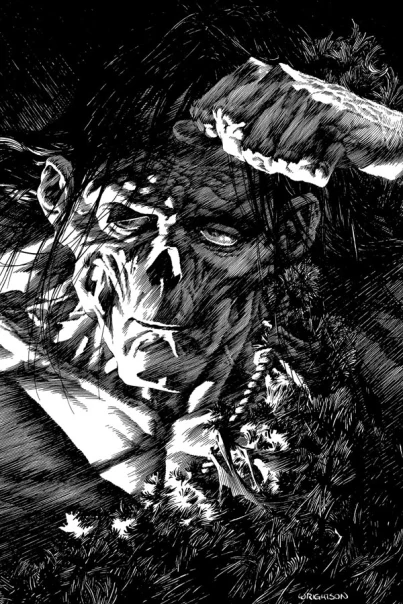
“Did I solicit thee from Darkness to promote me?”
Horror fans, you know what that is: the epigram to Mary Shelley’s Frankenstein. It’s a quote from John Milton’s Paradise Lost, which, like many Romantics, Mary Shelley had an incredible boner for. Here, Adam beseeches God after his exile, stating that God bears at least part of the blame for his fall from grace, since Adam did not ask to be born and, if never born, could not transgress. So too does the Creature tell Victor that, since he was the one who created him, it is his responsibility to ease the suffering that is his non-consensual lot.
I’ll be real: I do not like reading Frankenstein. I don’t like the way Mary Shelly writes. If it truly does owe much to contributions by her husband Percy, this changes nothing, because I don’t like the way he writes, either. Just a difference in priorities, not a denigration of their skills. I’m not one of those authors who worship at the altar of Hemingway-esque, brutally brusque style, but I also don’t want to stop the story so a scene can be described with the umpteenth use of ‘sublime.’ Seriously, Victor, you’re fucking dying; shut up and summarize.
But I do love the Creature, as melodramatic and Extra(tm) he may be (with Victor for his Prometheus, this isn’t surprising in the least). For the past two hundred (almost!) years, people have written on how We Are All The Creature, how Victor And The Monster Is The Same, how relatable his abandonment and subsequent development into a monster are to the Modern Youth.
Also, he’s eight feet tall??? And superhumanly powerful???? And articulate and sensitive??? And eight feet tall???? With vividly described ‘lustrous,’ ‘flowing’ black hair and teeth ‘of pearly whiteness’???? Choose me, Creature, you need not give your life but to obtain one look of affection from mine eyes. You just need to walk in front of me. Woof.
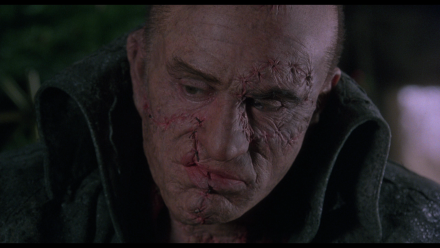
This is a lot of context to pose an important question: what are the Essential Frankenstein Traits? What must be there for the creature to truly be a Frankenstein, and not just, I don’t know, some zombie?
For this question, I took into account the novel, the Universal Pictures movie, and everything else that has seeped into pop culture. These are the traits I came back with, and they are, of course, my opinion, colored by my biases as much as anything else on this blog. So if you don’t agree, that’s cool, it’s just, like, my opinion, man.
Disclaimer of opinion aside, let’s review The Essential Frankensteinian Traits.
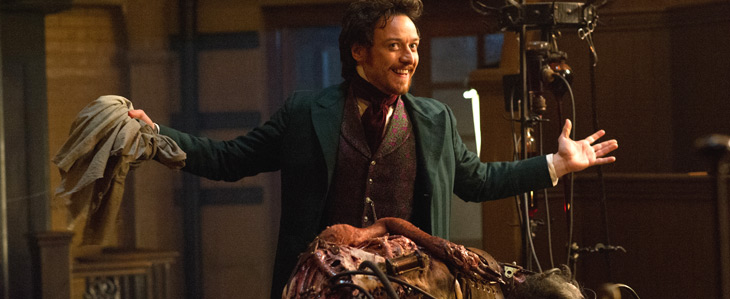
Firstly, of course, you’ve got the Creature’s Prometheus, the one who made him. It must be through another’s actions that the Creature arises. This isn’t because the story is inherently one of defying God, though of course that’s important; it’s because all of this is not the Creature’s fault.
It didn’t ask to be born. It didn’t ask to feel, to exist, to suffer. The fact that it lives in misery is the fault of others, the fault of the people around it. Not to say the Creature is totally innocent. In the book, long after it learns the value of life and virtue, it still chooses to murder and maim. But if not for the actions of another, like Adam falling from the Garden, it need never have suffered.
This is contentious, but I don’t think the creator even needs to despise the monster, though this makes sense given all my other points and happens in most non-parody media. It’s more important that the creature is created, and its creator refuses to take responsibility for it until it’s too late. The creator doesn’t respond with the appropriate amount of care for the situation; they either abandon it, or don’t give the monster enough context for its situation, or don’t try to stop its more destructive impulses until it’s too late. The creator is obsessed not with the life they’ve created, but with the fact that they created it.
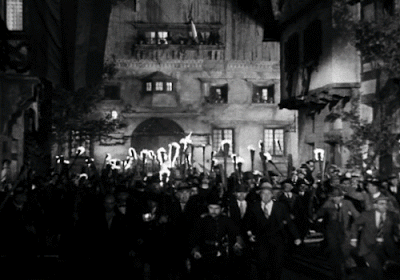
Secondly, reactions to the monster must be out of proportion with its appearance. It’s not enough to have your monster be ugly: people’s reactions to it must be over the top. They recoil in horror even if the monster just looks like that schlubby dude from Penny Dreadful. There’s something about this monster that most people just hate from the word ‘go.’
My favorite example of this is in Promethean: the Created, a game by Onyx Path. There’s a mechanic called the Disquiet, and it reflects the way people and reality intrinsically despise the Created. I don’t know a lot about it because it’s really sad and I don’t wanna play it (there’s a lot of alchemy in there, which is also a nice throwback to the original book where the process of creation took somewhat from alchemy), and I don’t know exactly why this happens, but the why isn’t important. What is important is that people hate the Creature more than it deserves. This plays back into the theme of all the ruin not being entirely the Creature’s fault. It doesn’t need to be horrific for people to hate it. It becomes horrific because it is hated.
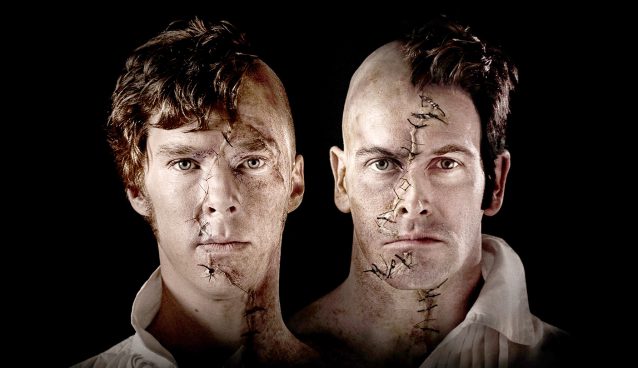
Thirdly, although the reactions are over-the-top, there must be something inhuman about its appearance, though this may be my most biased point of all. The Creature looks apart from humanity, an indelible mark to symbolize its otherness. Unnaturally big and green, sutured together, a big ol’ robot, an AI that projects a hologram shaped like Hatsune Miku, whatever, there is a physical mark that forever renders the Creature other. Something it can observe, and remark on even before it realizes it’s doomed to be forever hated.
The Creature can tell it’s different even before it realizes its creation was abhorrent. Visible otherness also puts the fact that the monster is a sensitive, feeling person in sharp contrast. It’s not a personality defect that marks the Creature as a monster… until the stress of people’s hatred turn its goodness into hate.
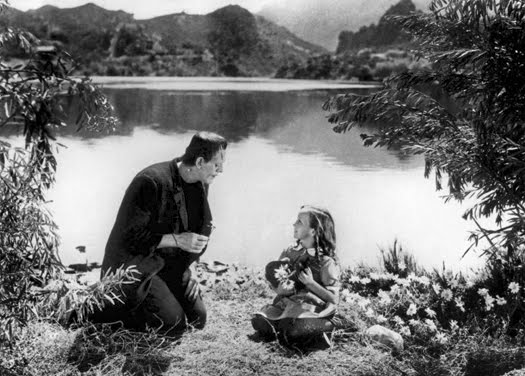
Number four: the creature must be ignorant at first. This seems pretty ‘well, of course,’ but this factor is what sets Frankensteins apart from, say, robots that are programmed with knowledge and then attack their creators after realizing the folly of their creation, etc. It also separates the Frankenstein from creatures that are born malignant as a result of their unnatural creation or the inherent wickedness of raising the dead.
The Creature means no harm, not at first. Its default setting is ‘gentle and lightly bewildered,’ not ‘incredible hatred for all mankind’ or ‘hit it dead.’ But the consequences for this ignorance are never good, least of all for those that find themselves in the monster’s presence. The original monster’s first killings were very intentional murders, but its ignorance of its appearance and the ways of man are what lead to it being attacked and its eventual quest to be revenged upon all mankind.
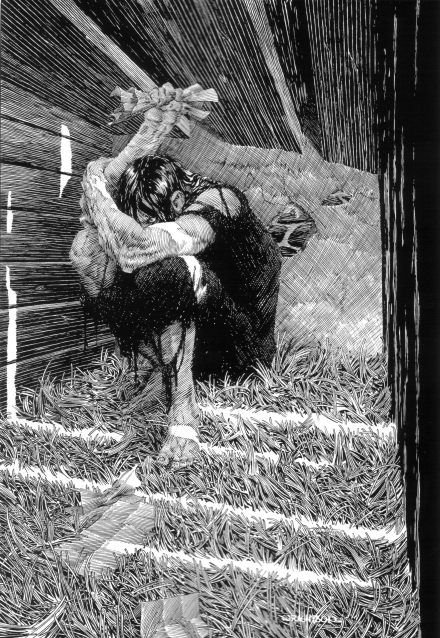
And, possibly the most important out of them all, the Creature longs for acceptance. It wants to be loved, it would give anything if only people could see past its hideousness to the good person within. It would stop its revenge quest against Victor, it would ‘quit the whole neighborhood of mankind,’ it would shed a thousand grateful tears… if only it was loved. This is the crux of all its problems: not that it’s unnatural, though it certainly is (and this may be the reason that most people can never, ever love it), but that it is denied love. Lack of love turns it into a monster, either in self-defence for those Frankensteins who take after Boris Karloff, or for revenge like the original.
Tying into this need for love is the creature’s violent reaction to rejection. Because love is all it truly wants, because a lack of love is the thing it defines itself by, the Creature cannot abide rejection. Rejection turns the once innocent, even childlike monster into a force of wanton destruction. In its rage, it does unconscionable things, like the murder of William Frankenstein and the framing of Justine, or the kidnap of women if it’s that kind of Frankenstein movie. Even Karloff’s ‘Stein responds to rejection (that of its Bride) with despair and murder-suicide.
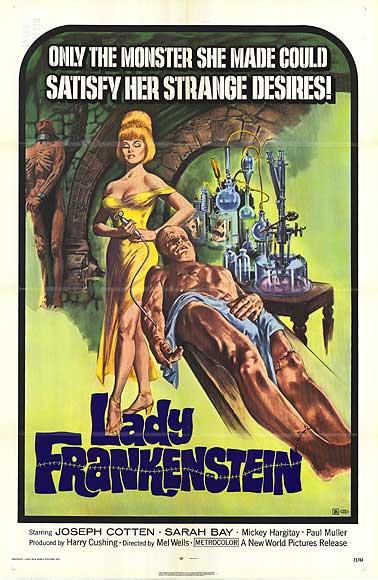
I didn’t appreciate the Creature as a kid. Boris Karloff’s portrayal wasn’t scary to me, because pop culture and violent video games had desensitized me to subtler imagery and I wasn’t smart enough to understand why a big baby with the strength of tens of men was so horrifying a concept. I would only come to appreciate the Creature later, when I realized that Karloffian Frankensteins were not the only ones out there (and not even the truest to the original. In my defence, I grew up very sheltered). I didn’t dislike Frankensteins, I just didn’t seek them out. Even my stitched-together monsters had less to do with them and more to do with all the anime I was watching. Don’t worry: young anxiety Dee would soon see the light.
I credit my love fully to my British Lit teacher in my senior year making us watch Kenneth Branagh’s Frankenstein adaptation. She had a crush on Kenneth Branagh; I left that class with a crush on Robert De Niro, or at least Robert De Niro with his face all stitched up.
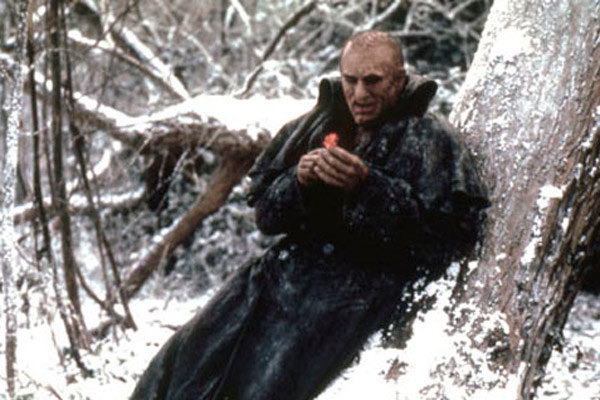
After that, Frankenstein moved up on my list of beloved monsters. I like them more than vampires (considering my output, this is shocking to believe), but vampires are a lot easier to write, and there’s more media to my tastes that involves them. There is no Hellsing for Frankensteins.
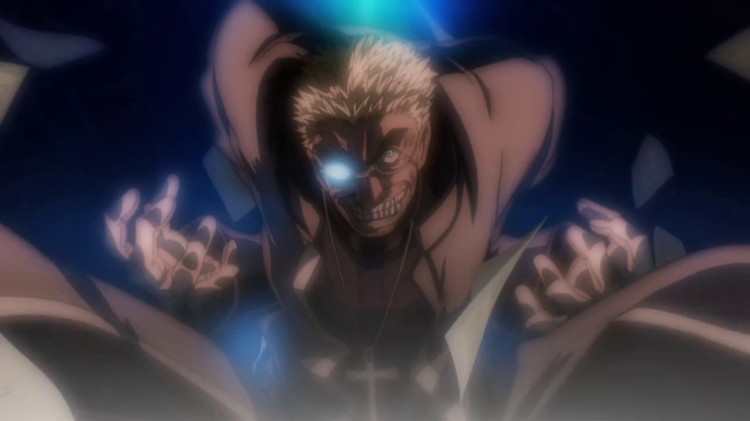
Despite how poorly the prose of the original novel has aged, the Frankenstein is fully deserving of its archetypal status in horror. With a good mix of corpses, the hubris of man, spiritual angst and sexual menace, it’s no surprise it’s stayed with us for so long.
Why the sudden interest in Frankensteins, you ask? Well, I’m writing a Frankenstein-inspired series as we speak. My usual mix of spooky and sexy, as one does, but before I started out, I wanted to ensure that I didn’t lose sight of what it was that makes the Creature so archetypal. What could change, and what couldn’t, and what must be emphasized to ring true to the monster.
My greatest hope is to provide something titillating that, nevertheless, evokes all the right emotions–the pity, the revulsion, and the dread–that the first Creature evoked. Hopefully, my opinion on the Essential Frankensteinian Traits will prove universal, and I can accomplish both.
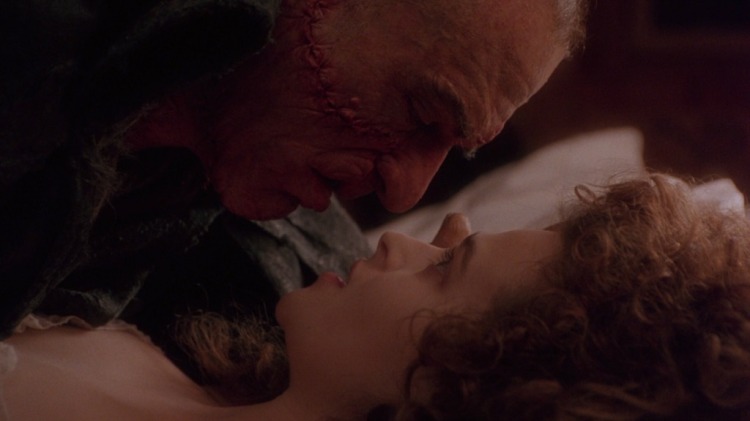
frankstein is the first story about an incel so perfectly written by a woman
LikeLike
Your disparagement of Mary Shelley’s writing style says far more about you than about her. I dislike John Milton’s poetic style in Paradise Lost, but I still read it; because the reading experience is not so narrow as to be only about my likes and dislikes, but about the work of verbal art that presents itself before (and not unto) me. don’t like her style?—then, I hope, you never write like she does. But, her books are still in print; will your essays be, in two centuries? I don’t like some of Wallace Stevens’ poems, especially when his iambic pentameter becomes too much like Milton’s; but I have been reading Pop Stevens’ stuff since October of 1978, and I dont intend to stop now. Stevens, Mary Shelley, and Milton—along with Vergil, Catullus and Callimachus—did not write to please me put to please the calling to verbal artistry as they perceived and received it. And that is independent of my likes or dislikes. I don’t always like the length of Dvorak’s Ninth Symphony, but I will never willingly stop listening to it. During my freshman undergrad year, back in the days of the dinosaurs, we (a good many of us from small, rural high schools where the arts were not taught in their fullness) were instructed that, when writing a paper, or answering an essay question on a final exam, never state some form of the phrase, “I do not like . . .” Rather, say that Vergil erred in not showing us more of Aeneas’ interior life (Vergil did not err; but I have read comments like that) rather than saying, “I don’t like Vergil’s error in omitting Aeneas’ interior life.”
LikeLike
Starward, you are clearly very intelligent, so I’m not sure how you missed this, but I also read things even when I dislike elements of their composition, such as, and I cannot stress this enough, Mary Shelley’s Frankenstein. The topic of the piece.
Not entirely certain why you felt the need to dump all these personal anecdotes on me, a horror porn author, in the comment section of a several years old, semi-humorous opinion piece explicitly written as part of my thought process for the development of further pornography. You’re smart, dude. You’re incredibly well-read. You’ve got nothing to prove to me. You’ve got nothing to prove to nobody.
LikeLike
I read Frankenstein for the first time less than a year ago and it STILL baffles me as to why people treat the creature as they do. If one sees someone disfigured, say, in a car accident, one may startle and maybe initially recoil but that’s just because of human knee jerk reaction to assessing if something is dangerous to you and because it was unexpected. Any adult who hates and/or fears someone merely due to extreme difference in appearance is either severely uneducated or a complete asshole.
And maybe that’s how I need to look at it. Many back then were not only uneducated they also ran from different looking people for fear of catching some disease.
But the concept is so foreign to me that I can’t really wrap my brain around it. How every single soul reacted to the Creature was, frankly, insulting to humanity.
As for Shelley, I think I read somewhere that she had children that died. Perhaps her writing Frankenstein may have been her way of working out some of her feeling on that. It certainly has a lot to say on creation and death and shitty parenting.
P.S. Sorry for dropping off the radar. Life got pleasantly busy for the holidays and then went to shit right after. Been miserable and busy. Hopefully I’ll be able to pop back here with some frequency now.
LikeLike
Shelley would probably have had a pretty dismal view of people on a whole–there was a lot of social upheavel and injustice, to which most people in her direct social circles responded to with “well I’m about to start a revolution, power to the people,” (her father and mother), to the typical Victorian English “I only listen to humans, not poor people or *shudder* the Irish.” I think the Gothic tradition of “but what would make this absolutely the worst” applies here–and like I said in another comment, I tend to think of the Creature’s story as a parable, so the people are not characters as we would appreciate them, just props to make the points. It doesn’t make the criticism invalid, naturally–their behaviors ARE ridiculous, even by the standards of the time–but it was what came to mind when I was wondering why she made the choices she did. The Creature draws so much from Christian religious imagery that it seems appropriate for him to tell a parable. Not especially strong characterization, but it does loop those themes together nicely.
One of the definite improvements of the classic movies, though they had an… interesting… approach to the Creature himself, was having the child not react with horror, and having the old blind man beg on the Creature’s behalf when he was being forced away. In the book, he doesn’t even see the Creature, only hears his plaintive cry for mercy, and turns on him just as swiftly as anyone else.
Shelley’s issues around parenthood and the upbringing of children especially could probably fill a book. A 75,000 word book… I belive you’re correct about her children’s deaths, though I can’t recall the source off the top of my head. She was considerably more socially conservative (though certainly more liberal than the norm, especially for her social class) than her father, and friction between their views probably made their relationship a bit difficult. I wonder if he inspired Alphonse Frankenstein in any capacity–a loving but critical, nagging sort who undercuts his son’s interests and efforts to educate himself and takes time out of his mourning to remind Victor that he’s been less than providant toward the family. I’m sure her father had cutting remarks regarding her failure to adopt more utopian views.
I figured something had come up when I didn’t see you for a little bit. I’m really sorry to hear about your troubles, Kitty, that blows. I hope you are able to come in more, I love reading your comments!
LikeLike